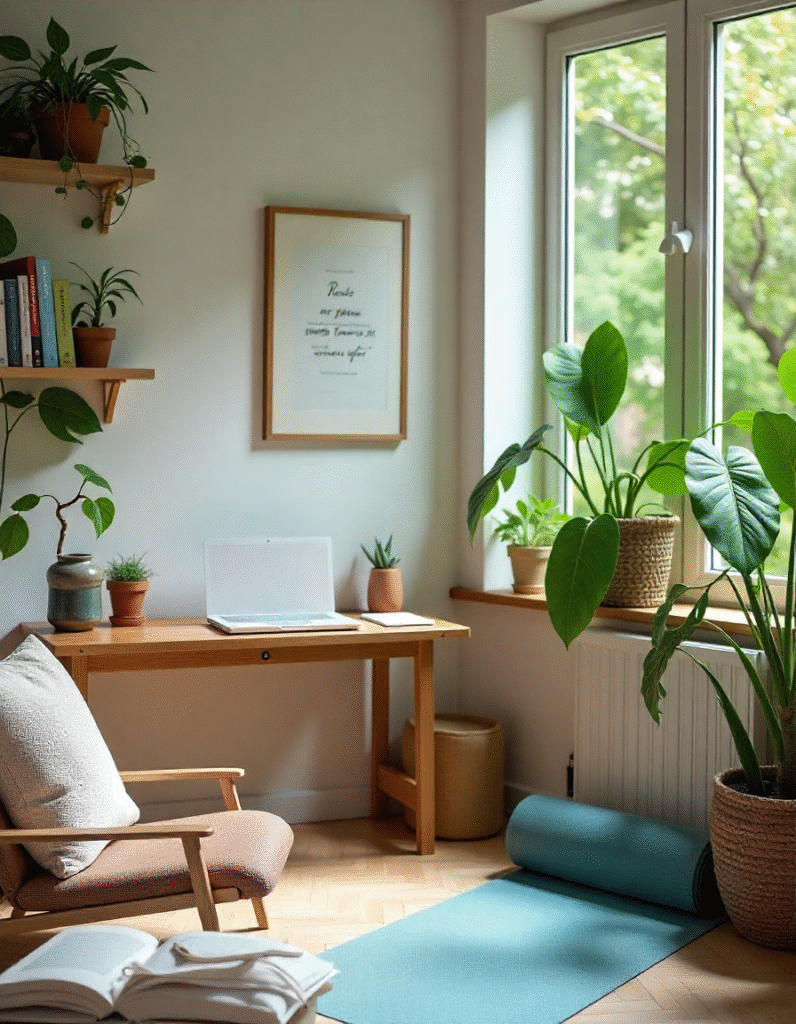In today’s fast-paced world, it’s easy to get caught up in the hustle and bustle of daily life. Between work deadlines, family responsibilities, social obligations, and self-care, finding balance can seem like an elusive goal. However, achieving a balanced lifestyle isn’t as difficult as it may appear. It’s about creating harmony between different aspects of your life—work, health, personal relationships, and personal growth.
A balanced lifestyle can lead to greater happiness, improved productivity, and better overall well-being. This article will explore practical strategies for achieving balance in your life and sustaining it in a world that constantly demands more of your time and energy.
1. Prioritize Self-Care: The Foundation of a Balanced Life
Self-care is not just about pampering yourself or indulging in occasional spa days; it’s about consistently maintaining your mental, emotional, and physical health. Prioritizing self-care is crucial because it allows you to recharge, restore your energy, and become more resilient to life’s challenges. Without it, burnout and exhaustion can quickly take hold, leaving you feeling drained and overwhelmed.
One of the simplest ways to integrate self-care into your routine is to make time for regular exercise. Whether it’s a brisk walk, a yoga session, or a strength workout, physical activity is essential for both physical health and mental clarity. Exercise helps reduce stress, boosts mood, and increases energy levels. Make it a habit to set aside time each day for some form of physical activity, even if it’s just 30 minutes.
Additionally, nourishing your body with a balanced diet is a form of self-care. The foods you eat directly affect how you feel and perform throughout the day. Eating a variety of whole foods, such as fruits, vegetables, lean proteins, and healthy fats, ensures that your body has the nutrients it needs to function optimally.
Sleep is another critical aspect of self-care. Quality sleep allows your body to recover and regenerate, and it improves cognitive function, mood, and decision-making. Aim for 7-9 hours of restful sleep each night, and establish a relaxing bedtime routine to help wind down after a busy day.
2. Establish Clear Boundaries: Work-Life Balance Matters
One of the most significant challenges in maintaining a balanced lifestyle is managing work-life boundaries. With the rise of remote work and the constant accessibility of smartphones and email, it can be difficult to truly “switch off” from work. However, without clear boundaries, work can easily spill over into personal time, leaving little space for relaxation and personal pursuits.
To create a healthy work-life balance, it’s important to establish clear boundaries between work and personal life. Start by setting specific working hours and sticking to them. If possible, create a dedicated workspace at home to physically separate work from your personal environment. When your workday ends, make a conscious effort to disconnect from work-related tasks, such as checking emails or taking calls.
In addition to boundaries with work, it’s also important to prioritize time for personal relationships. Spending time with family and friends is essential for emotional well-being and creating lasting connections. Make it a point to schedule regular activities that involve your loved ones, whether it’s a weekend outing, a dinner gathering, or simply spending quality time together without distractions.
Lastly, taking regular breaks throughout the workday is essential for productivity and mental clarity. The Pomodoro technique, which involves working in focused 25-minute intervals followed by short breaks, is a great way to stay on task without burning out.
3. Mindful Living: Embrace the Present Moment
In our always-connected world, it’s easy to get caught up in the rush of the next task, goal, or obligation. However, practicing mindfulness—paying attention to the present moment without judgment—can help you develop greater clarity, reduce stress, and foster a deeper sense of fulfillment.
Mindfulness can be practiced in many ways, from meditation and deep breathing exercises to simply being more present during everyday activities. For example, when eating, focus on the taste, texture, and smell of your food rather than rushing through the meal. When walking, pay attention to the sensations in your body and the environment around you. Practicing mindfulness helps you slow down and appreciate the moment, making it easier to manage stress and avoid feeling overwhelmed.
Another great way to incorporate mindfulness into your routine is through journaling. Writing about your thoughts, emotions, and experiences allows you to process them in a healthy way and reflect on what truly matters. Journaling can also serve as a creative outlet and help you set intentions for the future.
In addition to mindfulness, adopting a positive mindset is crucial for a balanced lifestyle. Focus on gratitude, celebrating your accomplishments, and learning from setbacks. A positive outlook can shift your perspective and help you approach challenges with resilience and a clear mind.
4. Time Management: Make Room for What Matters
A balanced lifestyle isn’t just about working less or spending more time relaxing—it’s about managing your time effectively so that you can make room for the things that truly matter to you. Time management allows you to juggle your responsibilities, prioritize your goals, and prevent burnout by allocating time for both work and play.
Start by identifying your most important tasks each day. Use tools like to-do lists, digital calendars, or productivity apps to track your commitments and deadlines. Prioritize tasks based on their urgency and importance, and break larger projects into smaller, manageable steps.
Additionally, practice saying “no” when you feel overextended. It’s easy to say yes to every request, but over-committing can lead to stress and burnout. Learn to recognize when you need to decline an invitation or ask for help, and don’t feel guilty about it. Setting limits and focusing on what aligns with your values will help you maintain balance.
Scheduling personal time is just as important as professional time. Whether it’s a hobby, exercise, or time to relax, make sure you’re dedicating time to activities that nurture your mind, body, and soul. Consider setting aside specific time blocks during the week for these activities, treating them with the same level of priority as work tasks.
5. Pursue Personal Growth and Lifelong Learning
A balanced lifestyle also includes continuous personal development. By investing in yourself and your personal growth, you create a fulfilling and enriching life. Lifelong learning—whether through formal education, self-study, or experiential learning—keeps your mind sharp and helps you grow as an individual.
Explore new interests, whether it’s learning a new language, developing a creative skill like painting or photography, or diving into a new area of knowledge. Personal growth also extends to emotional development, such as improving communication skills, fostering empathy, and building resilience.
Growth doesn’t just apply to intellectual pursuits; it also involves deepening your self-awareness and emotional intelligence. Taking time for reflection, asking for feedback, and being open to constructive criticism will help you evolve as a person and strengthen your relationships with others.
Conclusion: The Path to a Well-Balanced Life
Achieving a balanced lifestyle doesn’t happen overnight—it’s an ongoing process that requires intention, self-discipline, and mindfulness. By focusing on self-care, establishing clear boundaries, embracing the present moment, managing your time effectively, and pursuing personal growth, you can create a harmonious balance between work, health, and personal fulfillment.
Remember, balance doesn’t mean perfection. There will be times when life feels overwhelming, and it’s important to be flexible with yourself. The key is to stay mindful of your needs and make adjustments when necessary. By striving for balance and embracing a well-rounded lifestyle, you’ll find greater satisfaction and happiness in both the everyday moments and the big milestones.






